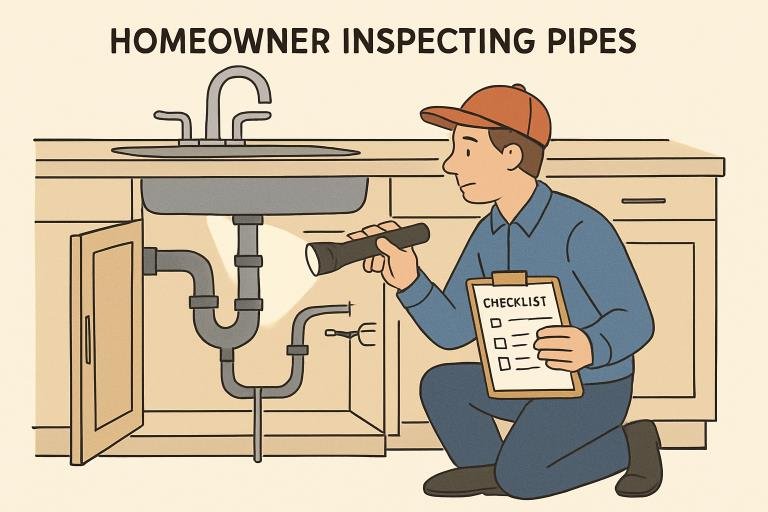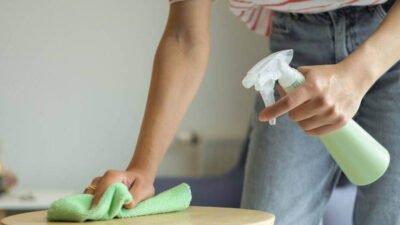Plumbing disasters can catch homeowners off guard, resulting in extensive property damage, expensive repairs, and considerable inconvenience. Staying vigilant and proactive with your plumbing system can make all the difference. Whether you’re a homeowner or a renter, taking the right steps can minimize your risk of encountering such issues. If you ever need expert assistance, you can find experienced plumbers in Temecula for specialized support and repairs.
Preventing common plumbing emergencies is not just a matter of good luck—it’s about regular maintenance, adopting careful habits, and knowing how to respond when problems arise. By educating yourself on proper plumbing care, you can prevent headaches and safeguard your home’s infrastructure.
Regular Inspections and Maintenance
Regular inspections play a crucial role in keeping your plumbing system in peak condition. Look for leaks, rust, and corrosion on exposed pipes, under sinks, and behind appliances. Even small drips can indicate a problem that might rapidly intensify if left untreated. Inspect caulking and sealing around tubs, showers, and sinks to prevent water intrusion into surrounding areas, and consider following a plumbing maintenance checklist like the one from The Spruce to stay on top of routine care.
What to Watch For
- Discoloration or bubbling on walls and ceilings (possible hidden leaks)
- Dampness under sinks and near appliances
- Strange sounds (rattling, banging) from pipes when using water fixtures
If you identify issues early, swift repairs can save money and prevent more significant disasters.
Monitor Water Pressure
Excessive water pressure can wreak havoc on your pipes, causing leaks or even catastrophic ruptures. The safe range for household pressure is typically 40–60 psi. Using a pressure gauge, you can measure and monitor your home’s water pressure. If your psi reading consistently exceeds the upper limit, install a pressure-reducing valve to keep it in check.
Proper Disposal Practices
Drains are not a catch-all for household waste. Pouring grease down your kitchen sink can lead to major blockages as it cools and solidifies inside pipes. Similarly, food scraps—even those that seem small—can build up with other debris and clog drains over time. Place filters or strainers over drains to catch larger particles and empty them into the trash regularly. Avoid flushing anything besides toilet paper and human waste to prevent sewer backups and clogged toilets.
Insulate Exposed Pipes
When temperatures plummet, unprotected pipes in unheated spaces—such as basements, garages, and crawl spaces—are prone to freezing. Frozen water expands, increasing the chance of a pipe bursting. To counter this, wrap vulnerable pipes with insulation sleeves or heat tape. An insulated pipe is far less likely to freeze in winter, providing peace of mind throughout the colder months.
Install Leak Detection Systems
Advanced leak detectors can alert you at the first sign of trouble. These devices utilize sensors to monitor water flow and moisture, automatically shutting off the water when a leak is detected. According to Consumer Reports, placing sensors under sinks, behind washing machines, and near water heaters provides protection for your most vulnerable areas. Modern leak detection systems can also be connected to your smartphone, delivering real-time alerts even when you’re away from home.
Know Your Main Water Shut-Off Valve
In an emergency, being able to stop the water flow quickly is paramount. Every member of your household should know where the main shut-off valve is located and how to operate it. Typically, it’s found near the perimeter of the home, in basements, garages, or along exterior walls. Shut off the main valve when making major repairs, retiring the house for extended periods, or reacting to sudden floods or pipe bursts.
Prepare for Vacations
Before leaving on vacation, check for leaks, blockages, or anything out of the ordinary with your plumbing. Consider turning off the main water supply if you’ll be gone for more than a few days. Have a trusted friend or neighbor monitor your home in your absence to catch any potential problems early. These simple steps can prevent you from returning to a costly mess.
Schedule Professional Inspections
While homeowner vigilance is important, annual inspections by a licensed plumber are invaluable for finding hidden issues and ensuring long-term reliability. Professionals can spot corrosion, test water pressure, check for slow-developing leaks, and recommend maintenance routines tailored to your home’s unique system.
Following best practices and regular upkeep can significantly decrease the likelihood of experiencing a plumbing disaster. A few precautions and timely actions will keep your plumbing system functioning smoothly and your home protected for years to come.



